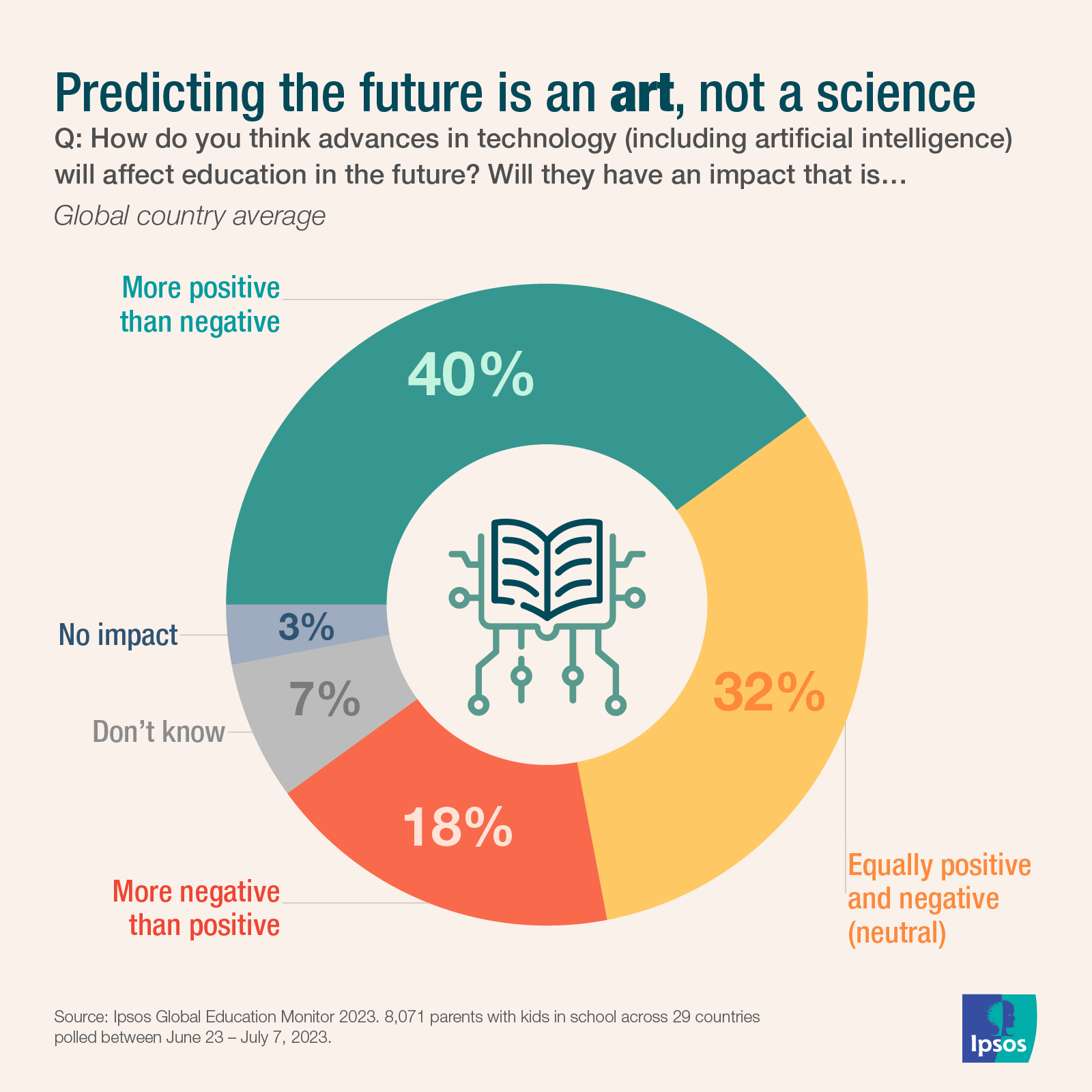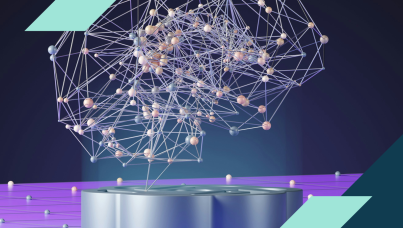Data Dive: How parents feel about the role of technology in education
Parents are getting a lesson in emerging technologies alongside their kids.
The start of another school year for many students around the world means the reignition of debates about banning artificial intelligence (AI)-based tools and the role technology should play in the classroom.
The days of children and teens lugging stacks of heavy books to classes to be taught by a chalk-stained teacher are starting to fade away.
“Like the calculator, Google or Wikipedia, it's hard to put ChatGPT aside and pretend that students won't use it,” says Amandine Lama, Global Lead for Innovation for Ipsos Public Affairs. “It is probably wiser to train them (and their teachers) to use these tools to enhance their learning and creativity.”
But what, and how, these tools should be used to prepare the students of today should be educated for the workforce of tomorrow is being figured out in real time.
Below, we dive deeper into Ipsos’ first-ever Global Education Monitor and look at how 8,017 parents with kids currently in school, on average across 29 countries, feel about everything from AI-related cheating to preparing their kids for a yet-to-be determined future.
- Chatter about ChatGPT
When ChatGPT launched late last year some school leaders quickly rolled out bans of the AI-powered tech.But, our polling finds almost half (47%, on average globally) of parents with kids currently in school don’t think the use of AI, including ChatGPT, should be banned in schools. Almost one in three (31%) do want AI banned, while a fairly large chunk (22%) aren’t sure yet if the nascent tech should banned or not.
New technology is breeding new debates with no easy answers.
“Even countries that initially decided to ban AI are now reversing or questioning this decision, such as Australia, where the ban on public school students using AI is raising fears of creating inequalities when some private schools are already teaching students how to use it,” says Lama.
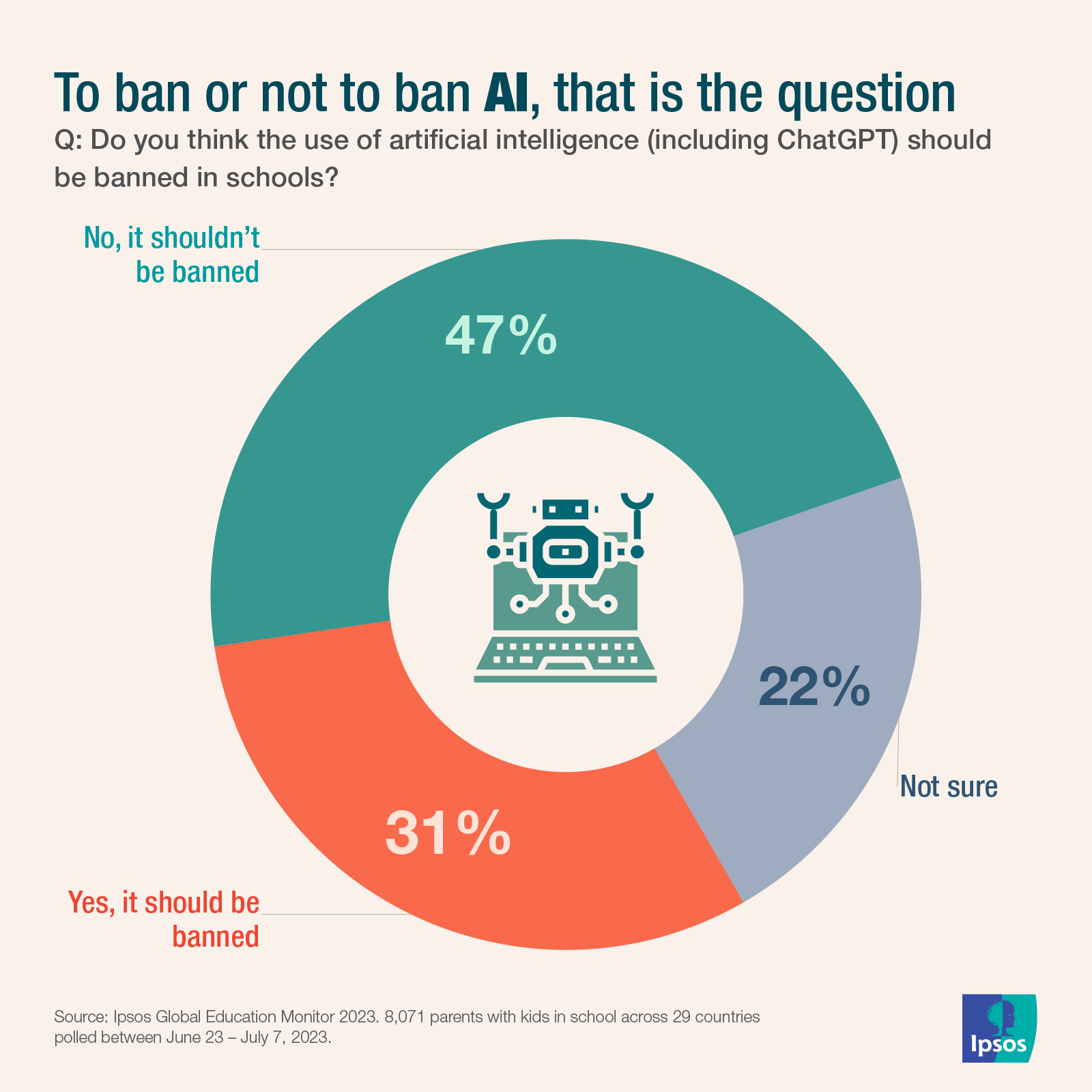
-
Looking for deception
Let’s be honest, as long as there’s been school there’s been students who’ve cheated.So, it’s not surprising that the vast majority of parents (76%) think teachers should be trained in how to identify papers, essays and test answers to tests that were generated by AI.
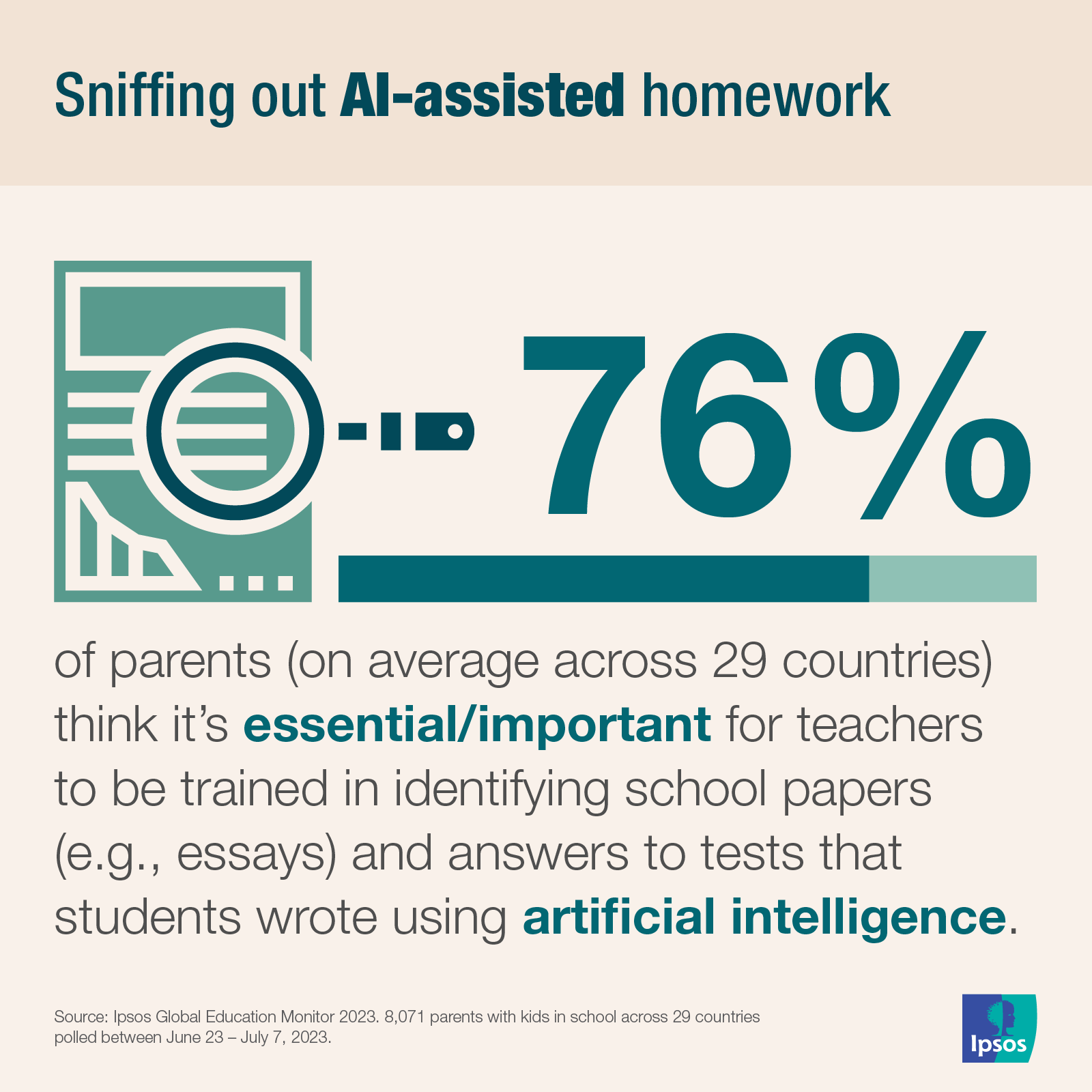
- The ABCs of AI
And while some parents want AI banned in schools, the vast majority want teachers trained on using and teaching the emerging tech.
Three-quarters (75%) of parents think teachers should be trained to teach students how to use AI. And a similar proportion (71%) think teachers should be trained in using AI methods in their teaching methods, such as in class preparation.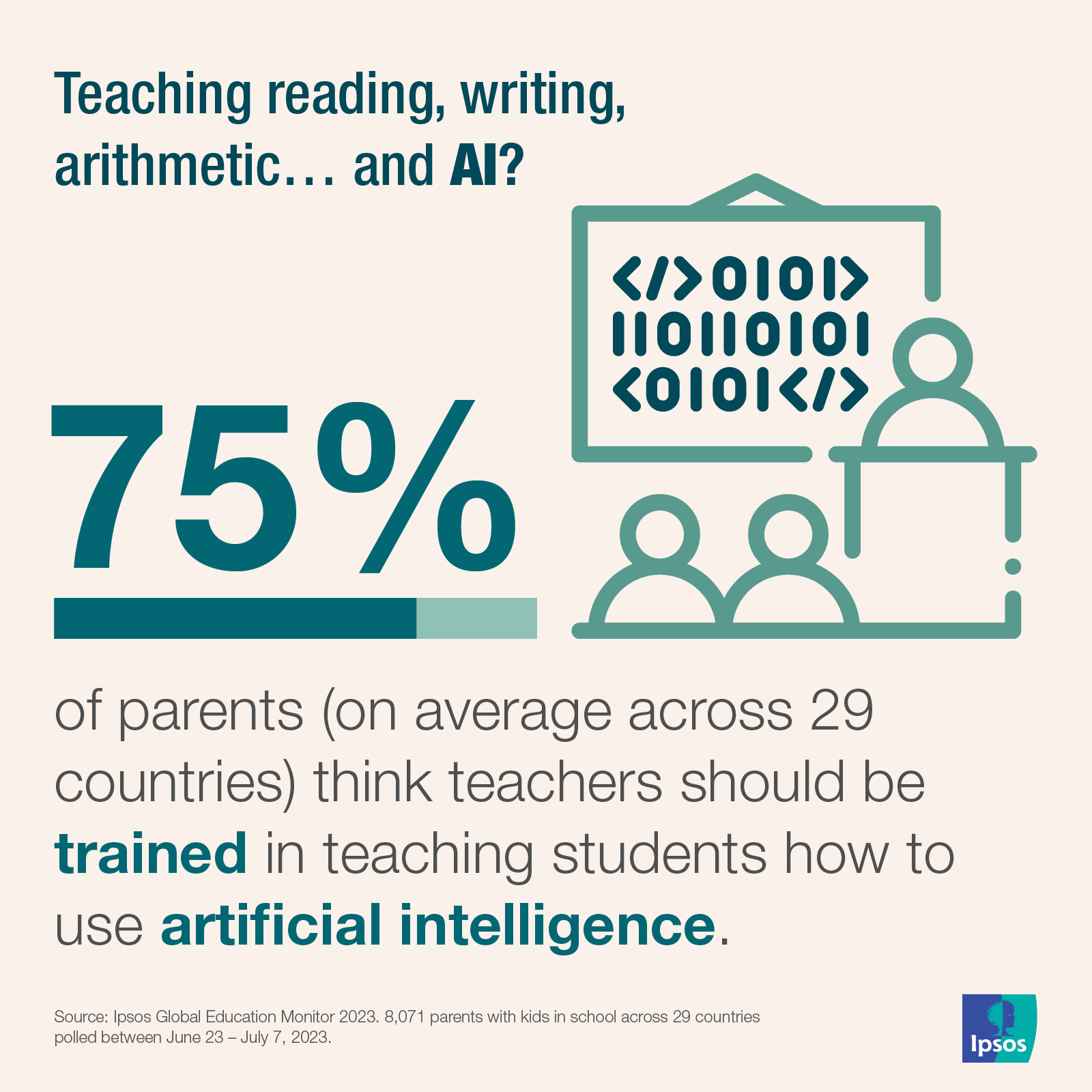
- The future is now
Sure, school is still about teaching kids the three Rs (reading, writing and arithmetic), but it’s also about preparing students to compete in a global job market that many predict will be significantly altered by AI.Our polling of 22,816 adults across 31 countries this spring finds the majority (57%, on average globally) think it’s likely AI will change how they do their current job in the next five years and just over one in three (36%) think it’s likely AI will replace their current job by 2028.
“Many parents are witnessing the impact of AI in real time in their workplace,” says Lama. “To ensure that their children are prepared for the future of the workplace it seems logical that they would want their children to be trained in the use of AI.”
While there’s been calls for years to serve up more STEM (science, technology, engineering and mathematics) subjects to up-and-coming generations, the acceleration of AI looks to be feeding the appetite for more.
Almost half (48%) of parents say not enough space is currently being given to new technologies, such as AI and coding, in the school curriculum in their country.
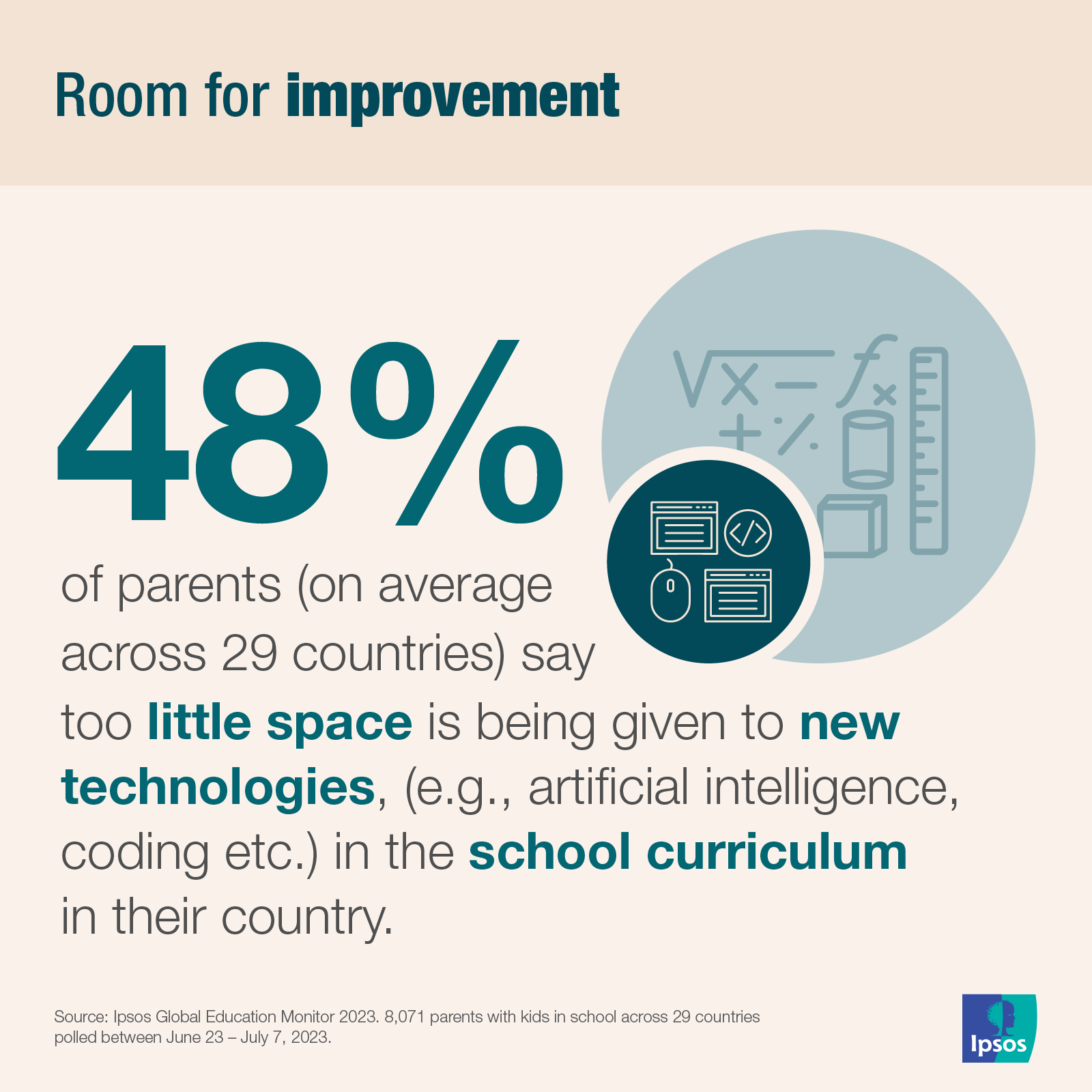
-
Mixed report card
The tentacles of technology are reaching further into every area of all of our lives, including school, every day.And many parents seem to see this as a good thing, with 40% predicting advances in technology will have a more positive than negative impact on education in the future.
On the flipside, almost one in five (18%) believe technological advances will negatively impact education down the road. And the remaining parents either believe technology will neither be positive or negative/neutral (32%), will have no impact (3%) or say they don’t know (7%).
